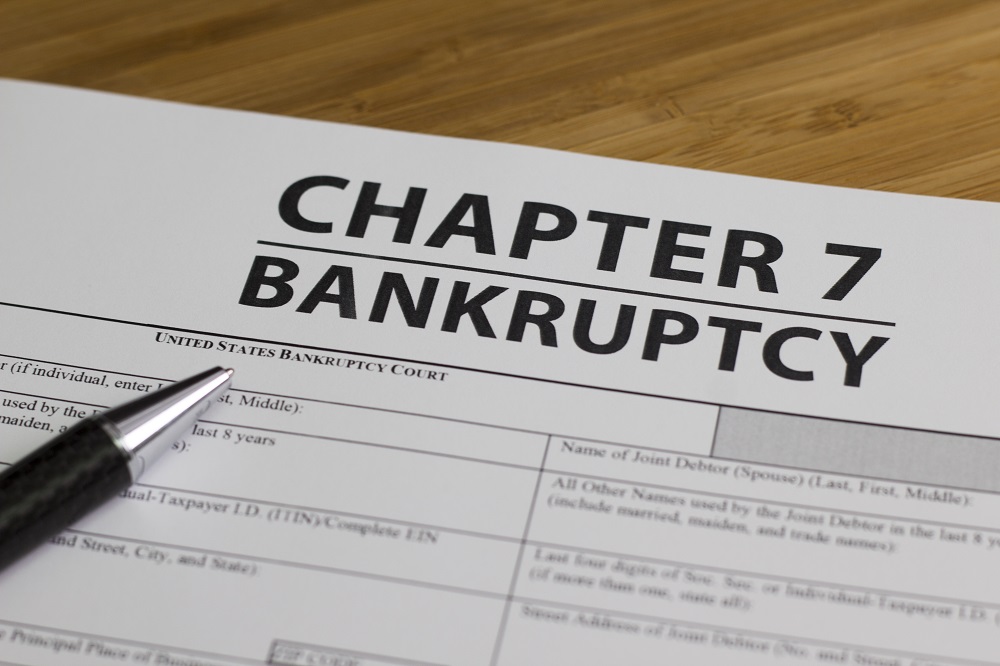Bankruptcy can be a complicated process. Any legal process can become even more convoluted when laws are not uniform or vary from state to state. Luckily most bankruptcy law is uniform and governed by the bankruptcy code.
Is my bankruptcy regulated by state or federal laws?
Bankruptcy cases are governed by the Federal courts exclusively.1 Therefore, you cannot file for bankruptcy in state court.2 This ensures that there is a fairly uniform law governing bankruptcy. US bankruptcy law used to be governed by each individual state until 1789 when Congress was granted the power to make a uniform law to govern bankruptcy.3 There were several bankruptcy acts passed in the effort to ensure that there was a uniform federal bankruptcy law.4
You can file bankruptcy by filing a petition with the bankruptcy court under the Chapter of the Bankruptcy Code that best suits your needs and for which you qualify. For example, Chapter 7 bankruptcy gives you a fresh start by taking your non-exempt property to pay off creditors and wipe your debts clean. Chapter 13 bankruptcy allows you to repay your debts in a more affordable way by creating a three to five year repayment plan to pay off your creditors.
Is there any part of bankruptcy that is regulated by state law?
Federal law governs bankruptcy exemptions. However, state law sometimes has variations on the dollar amount of exemptions in certain bankruptcies by opting out of the federal exemptions. 11 U.S.C.A. A� 522. Exemptions apply in certain situations depending on the bankruptcy you declared so that you can keep your property to a certain amount. Exemptions can stretch from protecting your home and vehicle to awards for personal injury and pain and suffering. For example, if you declare a Chapter 7 bankruptcy in Arizona you can exempt $150,000 of equity in your home. In contrast, the federal homestead exemption allows you to protect $22,975 of equity in your home.5 Since state laws typically govern financial obligations and debts that are created by contracts, it makes sense that minor debtor issues are left to the states.6 However, state laws should not conflict with federal bankruptcy laws.
What is there are federal bankruptcy exemptions that my state does not cover?
You can use federal bankruptcy exemptions if your state allows it.7 However, if you opt to use one system you should not be able to use the other (i.e. federal or state).8 Arizona is not one of the states that allows you to choose between federal and state exemptions.9 Thus, you must use the Arizona exemption limits when you file your bankruptcy petition.
Find out more about federal and state bankruptcy laws from the Phoenix bankruptcy attorneys at Ariano & Reppucci, PLLC.
[1] Bankruptcy, uscourts.gov, http://www.uscourts.gov/FederalCourts/Bankruptcy.aspx (last visited Dec. 29, 2014).
2 Id.
3 Bankruptcy, legal-dictionary.com, http://legal-dictionary.thefreedictionary.com/Federal+versus+State+Bankruptcy+Laws (last visited Dec. 29, 2014).
4 Id.
5 Baran Bulkat, The Federal Bankruptcy Exemptions, nolo.com, http://www.nolo.com/legal-encyclopedia/federal-bankruptcy-exemptions-property.html (last visited Dec. 30, 2014).
6 See Bankruptcy, supra note 3.
7 Baran Bulkat, What Is the Difference Between Federal Bankruptcy and Nonbankruptcy Exemptions?, nolo.com, http://www.nolo.com/legal-encyclopedia/what-is-the-difference-between-federal-bankruptcy-nonbankruptcy-exemptions.html (last visited Dec. 30, 2014).
8 Id.
9 Baran Bulkat, supra note 5.



